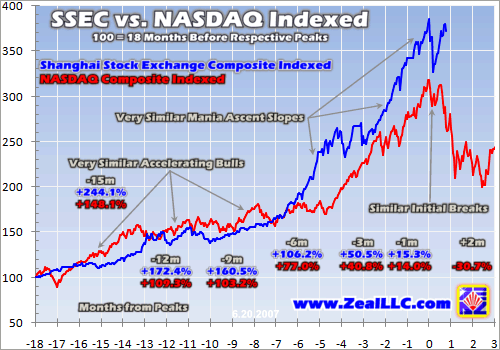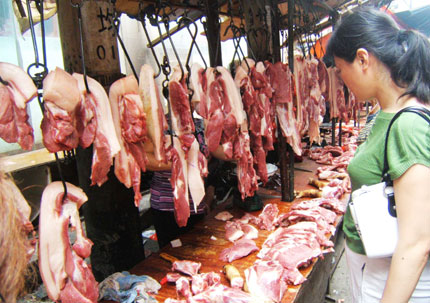It makes an interesting contrast to jump from "stock market frenzy" to how many Chinese make a living and survive on less than a dollar a day recycling other people's rubbish. As a side issue China's economy can only benefit from such activity - the problem will come when the Chinese become too wealthy to indulge in such activity and follow the West down the road to becoming a disposable society.
Ben has an excellent writing style and the blog is always interesting. I must add it to my blog roll if it is not already there.
Professional Recycling
One summer when I was 10 years old, I heard a rumor at summer camp that there was a grocery store in my neighborhood which would pay cash for recycled aluminum cans. For the next 4 weeks, I collected all of the aluminum cans from fellow campers until I had nearly filled an entire garbage bag. At the end of the summer my dad took me to the grocery store. I proudly showed the clerk my bag full of cans which was nearly half my size. He told me I was a responsible little boy for caring so much about the environment, and then handed me $1.29 cash for my summer worth of can collecting.
5 years later, I started my first real job, working as a sacker in a local grocery store. I was paid $4.25 per hour, which was the minimum wage in Kansas at the time. It didn’t take me long to figure out that labor is worth more than materials in the USA.
While I was working at the barber shop, three or four times per day, a middle aged man or woman would rummage through the trash can in front of the store. There was a man who would collect bottles and cans, a woman who would collect the plastic disposable cups we used to serve the customers water, and there was even a lady who would come every few days to collect all of the hair. By the end of the day, there was hardly anything left in the trash.
To a casual observer, these people might seem to be beggers. Fuzhou does have its share of panhandlers, but these are not the same people who are digging through the trash Rather, the people who collect our disgarded items are professional recyclers.
In Fuzhou, recyclers can collect .07 RMB for an aluminum can and .1 RMB for plastic bottles. At this rate, it would take about 109 aluminum cans to equal 1 US dollar. This rate is not too far off the one I was given that summer I collected cans at camp. The return is still not high, but when you consider a low-level service industry job requires 4 hours of work to earn 1 US dollar, the prospects of making a living off of recycling suddenly become more attractive. Add that China’s densely populated cities make the process of bottle collecting more efficient than they would be in the US, and it is not surprising why professional recycling is such a common profession in China.
In addition to recycling cans and bottles, professional recyclers also collect and/or buy used electronic devices, books, magazines, cardboard, CDs, and virtually anything else which at some time had value. Some of it is resold, and some is broken down for scrap. The recyclers ride their bikes through city streets with big signs placed in front of the handle bars which read 高价回收 (high price recyclying) and contain a list of items (usually household electrical appliances) which they will buy.
The future will only tell how much longer recycling will remain a profession in mainland China, and presumably as the price of labor rises, the draw to professional recycling will recede. But as barbershop workers are still making only 24 cents an hour, recycling stands to remain a viable profession for the near foreseeable future at least.





